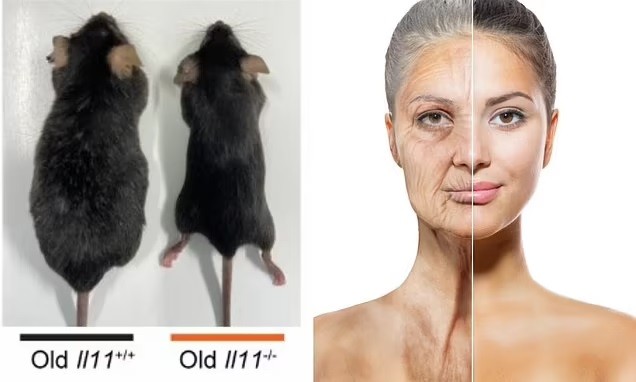20/07/2024
20/07/2024

LONDON, July 20: In a groundbreaking study, scientists have discovered a drug that extended the lifespans of laboratory animals by nearly 25%, sparking hopes for its potential to slow aging in humans, according to a report by BBC. The treated mice, endearingly referred to as "supermodel grannies" in the lab due to their youthful appearance, exhibited improved health, strength, and fewer incidences of cancer compared to untreated mice. While the drug is currently undergoing human trials, it remains uncertain whether it will achieve the same anti-aging effects in humans.
The pursuit of a longer life has been a long-standing goal throughout human history. Scientists have long known that the aging process is adaptable; for instance, laboratory animals tend to live longer when their food intake is significantly reduced. The field of aging research is currently thriving as scientists aim to uncover and manipulate the molecular mechanisms underlying aging.
Researchers from the MRC Laboratory of Medical Science, Imperial College London, and Duke-NUS Medical School in Singapore focused on a protein called interleukin-11. Its levels increase with age, leading to heightened inflammation and triggering several biological processes that control aging.
In their experiments, the researchers first genetically engineered mice to be incapable of producing interleukin-11. In a subsequent experiment, they waited until the mice were 75 weeks old (approximately equivalent to a 55-year-old human) before regularly administering a drug to eliminate interleukin-11 from their bodies.
The results, published in the journal Nature, showed that lifespans increased by 20-25%, depending on the experiment and the sex of the mice. Typically, older laboratory mice often die from cancer, but the mice lacking interleukin-11 had significantly lower levels of the disease. They also exhibited improved muscle function, were leaner, had healthier fur, and scored better on various measures of frailty.
When asked about the credibility of the data, Prof. Stuart Cook remarked, "I try not to get too excited, for the reasons you say, is it too good to be true? There's lots of snake oil out there, so I try to stick to the data and they are the strongest out there." He firmly believes it is worth trialing in human aging, arguing that the impact "would be transformative" if it worked, and expressed his willingness to take it himself.
The major unanswered questions are whether the same effect could be achieved in humans and if any side effects would be tolerable. Interleukin-11 plays a role in the human body during early development. Rarely, people are born unable to produce it, which affects the fusion of skull bones, joint health (potentially requiring surgery), and tooth emergence. It also contributes to scarring. Researchers believe that later in life, interleukin-11 drives aging.
The drug, a manufactured antibody targeting interleukin-11, is currently being trialed in patients with lung fibrosis, a condition where the lungs become scarred, making breathing difficult. Prof. Cook mentioned that while the trials are not yet complete, the data suggests the drug is safe to take.
This approach is just one of many in the quest to "treat" aging with drugs. The type-2 diabetes drug metformin and rapamycin, which is used to prevent organ transplant rejection, are both actively researched for their anti-aging properties. Prof. Cook believes a drug would be easier for people than calorie restriction. "Would you want to live from the age of 40, half-starved, and have a completely unpleasant life, if you're going to live another five years at the end? I wouldn't," he said.


